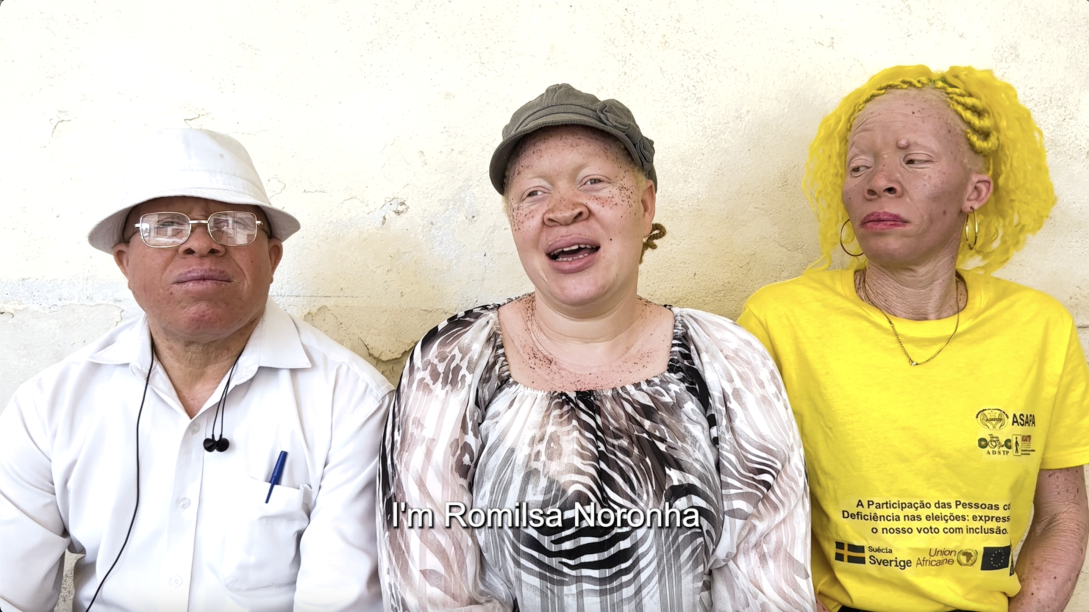When voting can be a big challenge

First of all, disabled people in São Tomé suffer the fact that many of them cannot vote independently. The access to polling stations still presents physical barriers.
Blind people face an additional challenge. They struggle to find a trusted guide: a person who can vote the way they asked, and respect the secrecy of their vote.
Deafness is an “invisible” disability. Deaf people are often not recognised as disabled, so they are not given priority in the voter lines.
Albinism is not a disability in itself, but can lead to disability because often associated with visual impairments, like photophobia. Lack of skin pigmentation makes Albinos more susceptibility to sunburns and skin cancers. The representatives of the association explain that: "This is not a minor problem, when you should stand for hours in the sun in order to vote."
EU election observation pays wide attention to human rights issues impacting on the electoral process, including the participation of disabled persons. Citizens with disabilities have an equal right to participate in public and political affairs. They should not face obstacles in enjoying their political rights, including the right to vote, to stand as a candidate and to take an active role in the campaign.
From the moment an EU Election Observation Mission deploys to a country, EU observers assess which measures are in place to promote and enable the full participation of people with disabilities.
The preliminary findings of this observation were included in the 2022 EU EOM Sao Tomé e Príncipe Preliminary Statement. At present, there aren’t reliable figures on how many people with disabilities there are in the country, and the last official data comes from the 2012 Census.
São Tomé e Príncipe ratified the UN Convention on the Rights of Persons with Disabilities. “However, a specific law on access to public positions for people with disabilities has stalled in the National Assembly for two legislatures and the overall attention to this group remains very low” the Preliminary Statement says.
“For these elections, there was only one declared candidate with disabilities to the National Assembly, and there was no information available on any other disabled candidate for the local elections” the statement continues. “According to the research conducted by the Associação dos Cegos e Ambliopes de São Tomé e Príncipe (ACASTEP), the main obstacles for a higher electoral participation are the absence of adequate ramps to access polling stations, lack of priority queues and special needs procedures”.
During the 2022 elections, there was a positive development: “UNDP supported the National Election Commission to train polling stations staff on people with disabilities’ access facilitation to polling stations, identification and targeted voter education for people with disabilities. On election day, people with disabilities were given priority to vote in two thirds of the polling stations observed by the EU EOM” the Preliminary Statements says.
The EU is preparing its Final Report that will contain more details on this issue.




